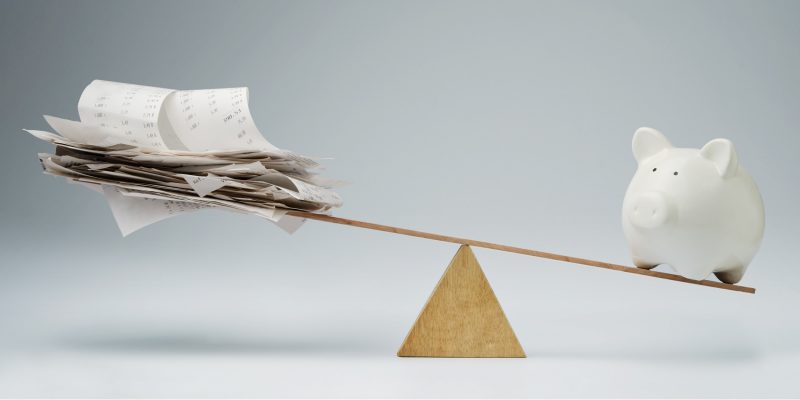HERE ARE 4 ESSENTIAL ELEMENTS OF A PERSONAL BUDGET AND THEY AREN’T WHAT YOU MIGHT THINK

Rising inflation has made personal budgets a hot topic again. And the internet is full of articles on the elements needed to create an effective budget: income, fixed expenses, variable expenses, and unplanned expenses.
Those things are important, and plenty of financial experts can tell you how to incorporate them into a budget.
But there are other equally critical behavioral elements of a personal budget that don’t get so much attention. But without them, you can’t really expect to have any success managing your expenses.
Commitment
Let’s face it. Sticking with a personal budget is challenging. If you aren’t committed to it, then nothing else matters. So how do you keep and maintain that commitment? Setting short and long term goals and plans is undoubtedly helpful.
Whether getting out of debt, going on that dream vacation, or retiring early, having something to shoot for provides the focus you need to stick with a budget.
But goals aren’t enough. Wanting to save for retirement is only helpful if you know how. So get a good fiduciary financial planner to help you lay out the strategy and tactics needed to reach those goals. Once you have goals and a plan, the next part becomes easier.
Consistency
You have to be willing to look at your finances consistently and frequently. Once a week is usually enough. Any more can become tiresome. Any less may throw you out of a routine. Of course, everyone is different, so see what works best for your personality type.
Whatever routine you get into, make sure it is just that, a routine. Make it a non-negotiable date, like going to work. For example, if you review your budget weekly, ensure it is on the same day and time every week.
Patience
Whether you are keeping a budget by yourself or with a partner, this element is essential. Be assured there will be mistakes made. It’s almost as inevitable as death and taxes. When those mistakes occur, give yourself or your partner a little grace. Then, try to learn from the error and fix it.
Flexibility
With patience and learning comes the ability to adapt to changes in your financial situation. You’ll learn how to think differently about money and how to spend it. Common financial paradigms, like needing a credit score, can be thought about differently.
And you’ll also learn to think outside the box on what you buy, where you buy it from, and if you even need it. You’ll also be flexible enough to learn from your mistakes. So, if a particular budgeting method isn’t working, you can adapt and change to a new one or make your own.
The key is learning from experts, getting help, and being open to new ideas. There they are, the four critical behavior elements necessary for a successful budget. Keep these in mind as you start your budgeting journey, and you’ll enjoy the benefits of knowing your financial situation and peace of mind as well.